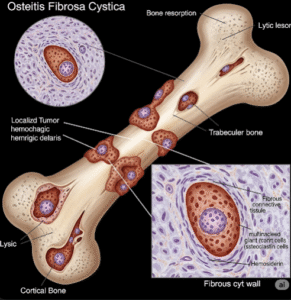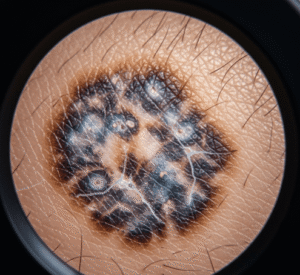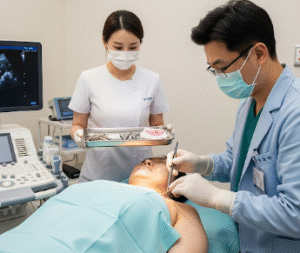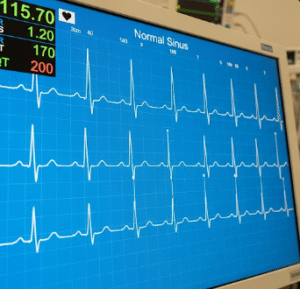➤ Overview
Terminal agitation refers to a state of restlessness, confusion, or agitation that occurs in patients nearing the end of life, often during the final days or hours. It is a common symptom in palliative care and hospice settings and can be distressing for both the patient and their caregivers.
In South Korea, terminal agitation is addressed by palliative care specialists, hospice teams, and multidisciplinary medical professionals to ensure patient comfort, dignity, and emotional support during the dying process. Proper management improves the quality of end-of-life care and provides guidance for families.
➤ Key Facts
→ Terminal agitation can occur in any terminal illness, including cancer, organ failure, and advanced neurological disorders.
→ It is estimated that 20–70% of patients in the final stage of life experience agitation or delirium.
→ Agitation may present as verbal outbursts, physical restlessness, or confusion.
→ Causes are often multifactorial, including metabolic changes, medications, infection, or pain.
→ In Korea, palliative care protocols include medication management, environmental interventions, and family counseling.
→ Unmanaged terminal agitation can increase patient discomfort and caregiver distress.
→ Early recognition ensures timely pharmacological and non-pharmacological interventions.
➤ What is Terminal Agitation?
Terminal agitation is defined as a cluster of behavioral and psychological symptoms appearing in the final stage of life, characterized by:
→ Restlessness – Inability to remain still, repetitive movements, or pacing.
→ Verbal agitation – Moaning, shouting, or repeated questioning.
→ Confusion or disorientation – Altered awareness of surroundings or time.
→ Physical agitation – Grabbing at sheets, pulling at IV lines, or thrashing movements.
→ Emotional distress – Anxiety, fear, or irritability in the dying patient.
In South Korea, healthcare professionals assess severity, underlying triggers, and patient comfort to provide individualized care plans.
➤ What Symptoms are Related to Terminal Agitation?
Terminal agitation may be accompanied by other physical, emotional, and cognitive symptoms:
→ Restlessness or repetitive movements → Pacing, fidgeting, or pulling at clothing.
→ Confusion or disorientation → Not recognizing surroundings or familiar people.
→ Verbal outbursts or moaning → Expressing fear, pain, or discomfort.
→ Emotional distress → Anxiety, irritability, or depressive features.
→ Sleep disturbances → Difficulty staying asleep or excessive wakefulness.
→ Pain or discomfort → Uncontrolled symptoms may exacerbate agitation.
→ Changes in vital signs – Rapid heart rate, irregular breathing, or blood pressure fluctuations.
→ Delirium features – Hallucinations or fluctuating consciousness.
→ Family distress – Caregivers may experience stress, anxiety, or helplessness.
➤ What Causes / Possible Causes?
Terminal agitation often has multiple contributing factors:
→ Metabolic imbalances – Electrolyte disturbances, dehydration, or renal/hepatic failure.
→ Medications – Side effects of opioids, sedatives, or anticholinergic drugs.
→ Pain or discomfort – Uncontrolled pain can trigger agitation.
→ Infections – Urinary tract infections, pneumonia, or sepsis.
→ Neurological conditions – Stroke, brain metastases, or dementia.
→ Hypoxia or respiratory distress – Reduced oxygenation causing confusion.
→ Psychological factors – Anxiety, fear of death, or spiritual distress.
→ Environmental factors – Noise, bright lights, or unfamiliar surroundings.
→ Withdrawal or drug toxicity – Opioid or sedative withdrawal or accumulation.
➤ When Should I See My Doctor?
Terminal agitation requires immediate evaluation by palliative care or hospice professionals, especially if it is:
→ Sudden in onset or severe in intensity.
→ Causing distress to the patient or family.
→ Associated with pain, dyspnea, or other uncontrolled symptoms.
→ Persistent despite routine comfort measures.
→ Occurring alongside delirium, hallucinations, or severe confusion.
→ Impacting sleep, nutrition, or vital signs.
→ When caregivers feel overwhelmed or unable to manage symptoms safely.
Early intervention in Korea ensures appropriate medication titration, comfort care, and emotional support for both patients and families.
➤ Care and Treatment
Management of terminal agitation focuses on comfort, safety, and dignity:
→ Environmental adjustments – Quiet, dimly lit rooms, minimal stimulation.
→ Reassurance and presence – Gentle touch, conversation, and support from caregivers.
→ Pain management – Opioids or other analgesics to relieve discomfort.
→ Sedation – Low-dose benzodiazepines or antipsychotics for severe agitation.
→ Hydration and nutrition – Balanced approach to avoid fluid overload or discomfort.
→ Monitoring and assessment – Regular evaluation of vital signs, symptoms, and medication effectiveness.
→ Spiritual support – Counseling, prayer, or rituals for emotional peace.
→ Caregiver support – Guidance, education, and respite for family members.
➤ Treatment Options in Korea
South Korea provides comprehensive palliative and hospice care for terminal agitation:
Diagnosis and Assessment in Korea
→ Clinical evaluation – Assess agitation severity, underlying causes, and patient comfort.
→ Symptom tracking – Pain, dyspnea, delirium, and environmental triggers.
→ Laboratory tests – Electrolytes, kidney/liver function, and infection markers if indicated.
→ Multidisciplinary consultation – Involving doctors, nurses, social workers, and psychologists.
Medical Treatments in Korea
→ Pharmacological management – Opioids for pain, benzodiazepines for anxiety, antipsychotics for delirium.
→ Non-pharmacological interventions – Gentle touch, music therapy, aromatherapy, and familiar objects.
→ Supportive care – Oxygen therapy, repositioning, and comfort measures.
Advanced Therapies in Korea
→ Specialized hospice programs – Comprehensive end-of-life care including medication, counseling, and 24/7 monitoring.
→ Tele-hospice support – Remote guidance for family caregivers managing symptoms at home.
→ Integrated care teams – Collaboration between hospital, home hospice, and palliative care specialists.
Rehabilitation & Support in Korea
→ Education for families on symptom recognition, medication administration, and emotional support.
→ Regular follow-up to adjust care plans based on patient response.
→ Integration with mental health, social work, and spiritual care professionals for holistic support.













